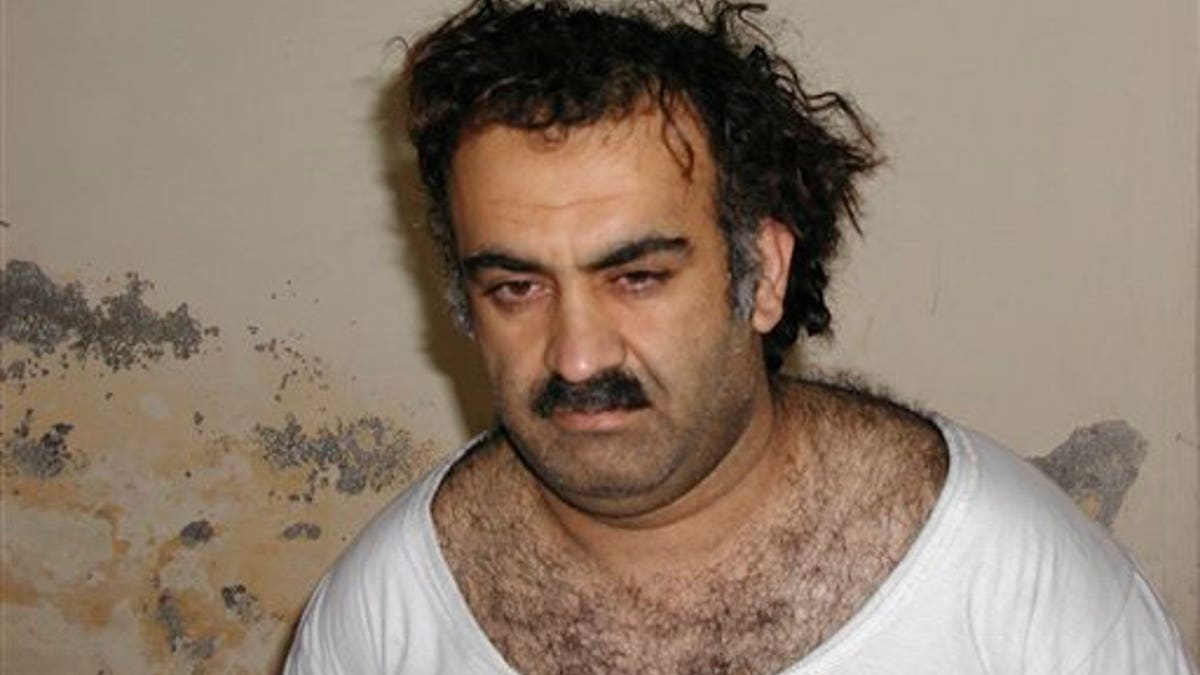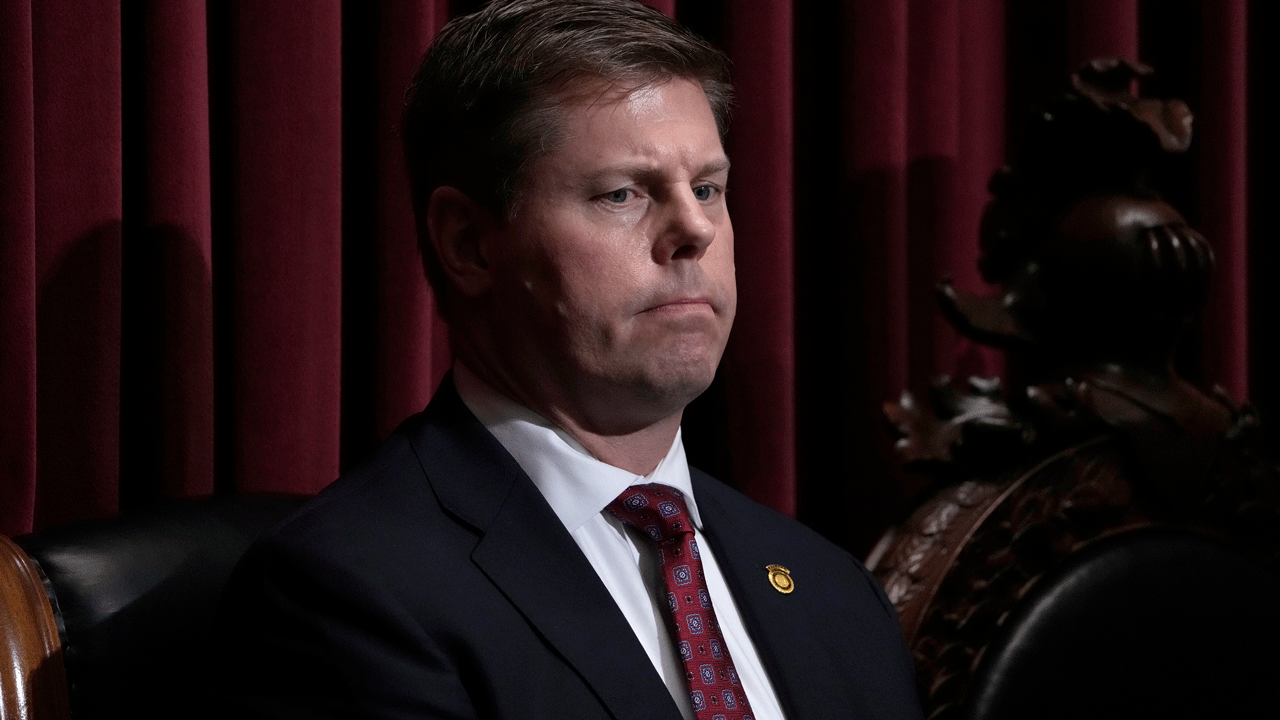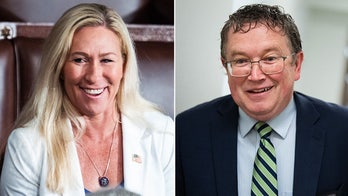
(AP)
Justice Department officials are firing back at Republican critics who have accused them of being soft on terror, saying they are the ones putting American lives at risk.
The comments are the first time that Justice Department officials have struck back publicly after being on the defensive for months.
In a recent hearing on Capitol Hill and in separate interviews with Fox News, high-ranking Justice Department officials said new efforts by Republicans to ban or limit the use of civilian courts for terrorism suspects would damage the U.S. government's ability to obtain intelligence and thwart potential attacks.
"Let me make this clear, let me make this very, very clear: If you were to take away (use of civilian courts) from the Justice Department, from this administration and subsequent administrations ... you would weaken our ability to fight successfully these wars," Attorney General Eric Holder said Tuesday before the House Appropriations subcommittee on Commerce, Justice and Science. "It is as simple as that."
A senior Justice Department official, who asked not to be identified so that he could speak freely, was more blunt, saying "broad-based" judgments about the appropriateness of civilian courts would make the United States "less rather than more safe."
"If you're building a house, you need to use a hammer, a wrench and a screwdriver," the official said. "If you say, 'Build a house without a wrench,' you can build a house, but it won't be as stable. To remove it altogether is obviously unwise."
Rep. Frank Wolf, R-Va., ranking member on the House Appropriations subcommittee, introduced legislation in February to ban civilian trials for the alleged Sept. 11 conspirators, including self-professed mastermind Khalid Sheikh Mohammed.
In early March, Sens. John McCain, R-Ariz., and Joe Lieberman, I-Conn., introduced legislation that would ban civilian trials for all terror suspects, forcing their cases into military commissions.
Other lawmakers have introduced similar legislation, and Senate Minority Leader Mitch McConnell, R-Ky., has said foreign terror suspects "ought to be tried" in military commissions.
"Deliberate mass attacks that intentionally target hundreds of innocent civilians are an act of war and should not be dealt with in the same manner as a robbery," McCain said on the Senate floor when introducing his legislation. "We must recognize the difference. If we don't, our response will be hopelessly inadequate."
During the hearing on Tuesday, Rep. John Culberson, R-Texas, agreed, saying military commissions are preferable because they offer "severely restricted rights" to defendants and don't allow terror suspects to be "clothed with all of the protections of the U.S. Constitution."
Culberson said the Obama administration "turns" to civilian courts "too readily," but noted that he, for one, doesn't want to take civilian courts off the table altogether.
Holder dismissed all that as "the politics of fear."
"Facts -- facts -- not fear must be the basis of all our discussions," Holder said, becoming exasperated toward the end of the hearing. "One only has to look at what has happened through the use of the (civilian) courts over the course of the past year to see the plots that we have broken up, the intelligence that we have gathered, and that has allowed our military to be more effective in the field. That cannot be denied. That cannot be denied."
Among other cases he referenced, Holder offered alleged "Christmas Day bomber" Umar F. Abdulmutallab as an example of a terror suspect charged in civilian court who then "cut deals" to "receive favorable treatment" in exchange for "intelligence that we wanted."
The senior Justice Department official said "no mechanisms" for such cooperation now exist in military commissions.
"It's a very valuable thing to be able to say, 'Look, we've got an 80-year sentence on a 20-yr-old man. We can trade him 20 years off the back end of that if he'll give us information that lets us neutralize three high-level terrorists right now,'" the official said. "In a war where the goal is to win, consistent with our values, that may be a very good trade."
But Republicans have often said that, while civilian courts produce intelligence, using them may not produce all of the intelligence that can be obtained. In fact, McCain called the handling of Abdulmutallab's case a "mistake" that he hopes "will never happen again and put Americans' security at risk."
"When we capture a terrorist who is suspected of carrying out or planning an attack intended to kill hundreds if not thousands of innocent civilians, our focus must be on gaining all the information possible to prevent that attack or any that may follow from occurring," McCain said when announcing his legislation. "Under these circumstances, actionable intelligence must be our highest priority and criminal prosecution must be secondary."
Holder said the administration is not trying to use civilian courts in all cases, it's just trying to "hold onto the ability to use our discretion to try these detainees in the appropriate forums."
He called military commissions "fine places" to prosecute certain cases, but he said civilian courts are "tested," "secure" and able to "guard secret information through the Classified Information Protection Act."
In addition, he and the senior Justice Department official said separately that many U.S. allies will cooperate with U.S. prosecutions only if any intelligence of evidence they share is not used in a military court.
Still, military commissions "certainly play a role" in the effort to fight terrorism and bring terror suspects to justice, Holder said.
"You're simply looking at the forum that best suits the particular facts of each case," he said.
Holder said that type of analysis is what led him to conclude that Mohammed and the other alleged Sept. 11 conspirators should be prosecuted in a civilian court in New York, a decision that has proved to be one of Holder's most controversial.
In reaching the decision to prosecute the five defendants in a civilian court rather than a military commission, Holder consulted with Defense Secretary Robert Gates but none of the other heads of relevant agencies, he said on Tuesday.
The Obama administration is now reconsidering Holder's decision, and a final determination is "weeks away," not months away, Holder said.
As for Holder's comments Tuesday trying to paint Republicans as hindering counterterrorism efforts, a Justice Department spokesman said Holder "very clearly wanted to make a point that the proposals we've seen would harm our national security."
"When you have the last nominee for president of the Republican Party and the Republican leader in the Senate both saying that no terrorist should ever be tried in the federal court system, it's clear that that party has made a political decision to remove a counterterrorism tool that is important to keeping our country safe, and by doing that they would weaken our national security," a Justice Department official told Fox News, asking to remain anonymous so as not to jeopardize relations with Republicans in Congress.
Meanwhile, the senior Justice Department official said he wanted to see the debate based in a more "detailed, granular comparison."
"It's a lot more complicated than it looks," the official said. "I am afraid that if you keep the argument at 30,000 feet you miss a lot of the nuance that ... could drive the outcome and make the real difference in one case or another. What you don't want is to have options just taken off the table from 30,000 feet up."




